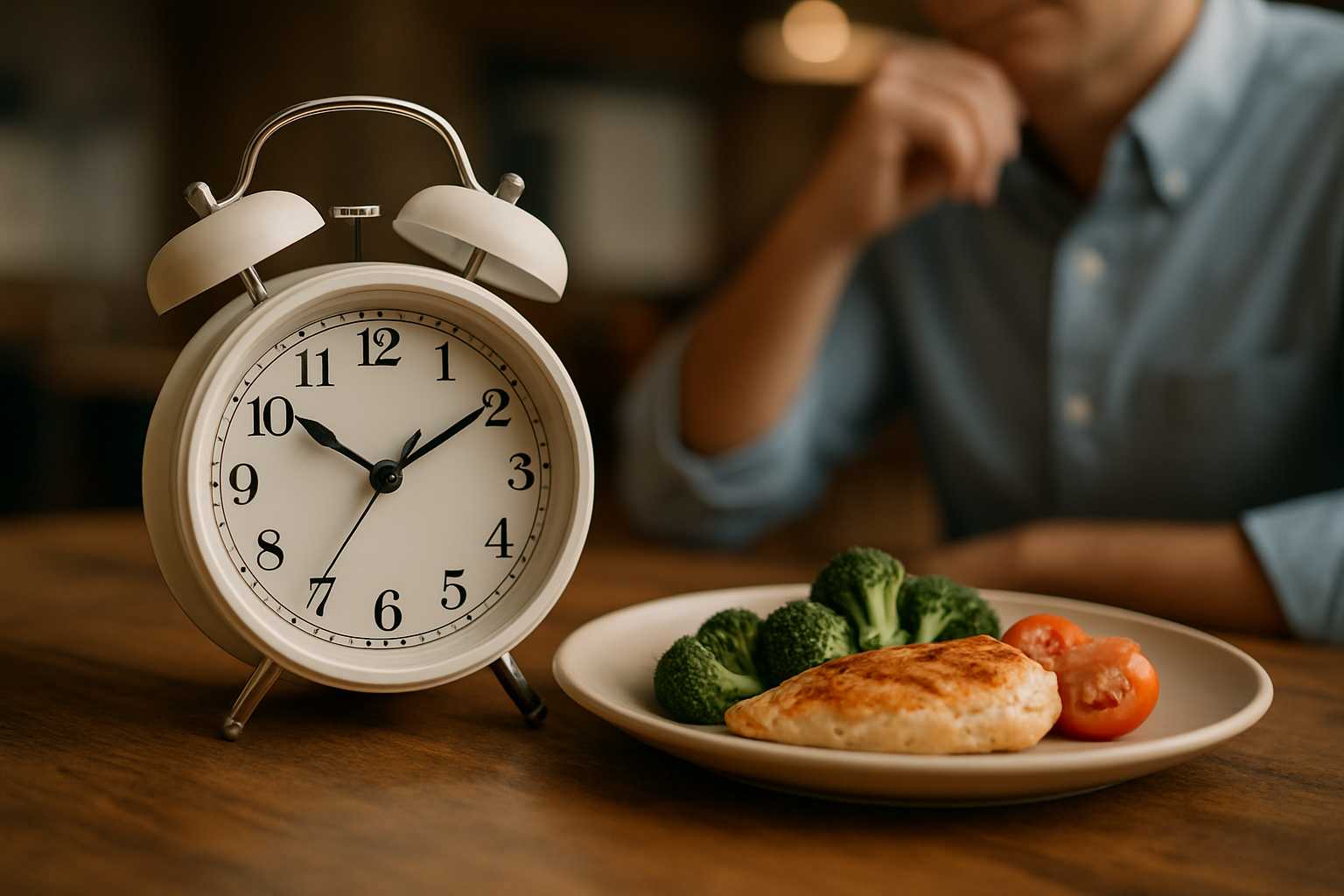Chronodiet: Aligning Nutrition with Your Body Clock
Imagine if the timing of your meals was just as crucial as their content. Picture a world where your body's natural rhythms dictate not just when you sleep, but when you eat. Welcome to the intriguing realm of chronodiet, a revolutionary approach to nutrition that's capturing the attention of health enthusiasts and researchers alike. But what exactly is chronodiet, and could it be the key to unlocking optimal health and wellbeing?

Research in chronobiology, the study of biological rhythms, has revealed that our bodies process nutrients differently depending on the time of day. For instance, insulin sensitivity is typically higher in the morning, making it an ideal time for carbohydrate consumption. Conversely, the body’s ability to metabolize fats improves as the day progresses, suggesting that fattier meals might be better tolerated later in the day.
Historical Context and Evolution
The concept of timing meals is not entirely new. Ancient healing traditions, such as Ayurveda and Traditional Chinese Medicine, have long emphasized the importance of eating in harmony with natural cycles. However, the scientific exploration of chronodiet is a relatively recent development.
In the 1970s, researchers began to investigate the relationship between meal timing and metabolism. Early studies on shift workers revealed disruptions in their metabolic health, hinting at the importance of aligning eating patterns with circadian rhythms. As our understanding of chronobiology expanded, so did interest in its applications to nutrition.
Key Principles of Chronodiet
Chronodiet is not a one-size-fits-all approach but rather a framework for optimizing meal timing based on individual circadian rhythms. Some general principles include:
-
Eating within a defined window: Limiting food intake to a specific period, typically 8-12 hours, to align with the body’s natural fasting and feeding cycles.
-
Larger meals earlier in the day: Consuming more calories during breakfast and lunch when insulin sensitivity is higher.
-
Lighter dinners: Opting for smaller, easier-to-digest meals in the evening to support the body’s natural wind-down processes.
-
Avoiding late-night eating: Refraining from food intake close to bedtime to prevent disruptions to sleep and digestion.
-
Consistent meal times: Maintaining regular eating schedules to reinforce circadian rhythms.
Potential Benefits and Challenges
Proponents of chronodiet claim a wide range of potential benefits, including improved weight management, better blood sugar control, enhanced sleep quality, and increased energy levels. Some studies have shown promising results in these areas, particularly in relation to metabolic health.
A 2020 study published in the journal Nutrients found that participants who followed a chrono-nutrition pattern experienced greater weight loss and improvements in metabolic markers compared to those on a standard diet. Another study in the Journal of Nutritional Science demonstrated that eating in alignment with circadian rhythms led to better glucose control in individuals with type 2 diabetes.
However, implementing a chronodiet can be challenging, particularly for those with irregular schedules or social obligations that interfere with meal timing. Additionally, the long-term effects of chrono-nutrition are still being studied, and more research is needed to fully understand its impacts on different populations.
Practical Implementation of Chronodiet
For those interested in exploring chronodiet, gradual implementation is often recommended. This might involve:
-
Establishing a consistent eating schedule
-
Prioritizing protein and complex carbohydrates in the morning
-
Gradually shifting larger meals earlier in the day
-
Experimenting with different eating windows to find what works best
It’s important to note that chronodiet should be tailored to individual lifestyles, preferences, and health conditions. Consulting with a healthcare professional or registered dietitian is advisable before making significant changes to one’s eating patterns.
Chrono-Nutrition Tips for Optimal Health
-
Start your day with a nutrient-dense breakfast within an hour of waking
-
Aim to consume most of your daily calories before 3 PM
-
Limit caffeine intake to the morning hours to avoid disrupting sleep patterns
-
Consider incorporating a 12-hour overnight fast
-
Pay attention to your body’s hunger cues and energy levels throughout the day
-
Adjust meal timing gradually to allow your body to adapt
As we continue to unravel the complex relationship between our internal clocks and nutrition, chronodiet stands out as a promising approach to optimizing health through strategic meal timing. While more research is needed to fully understand its long-term effects, the principles of chrono-nutrition offer an intriguing perspective on how we might better align our eating habits with our body’s natural rhythms. By considering not just what we eat, but when we eat it, we may unlock new pathways to improved health and wellbeing.





